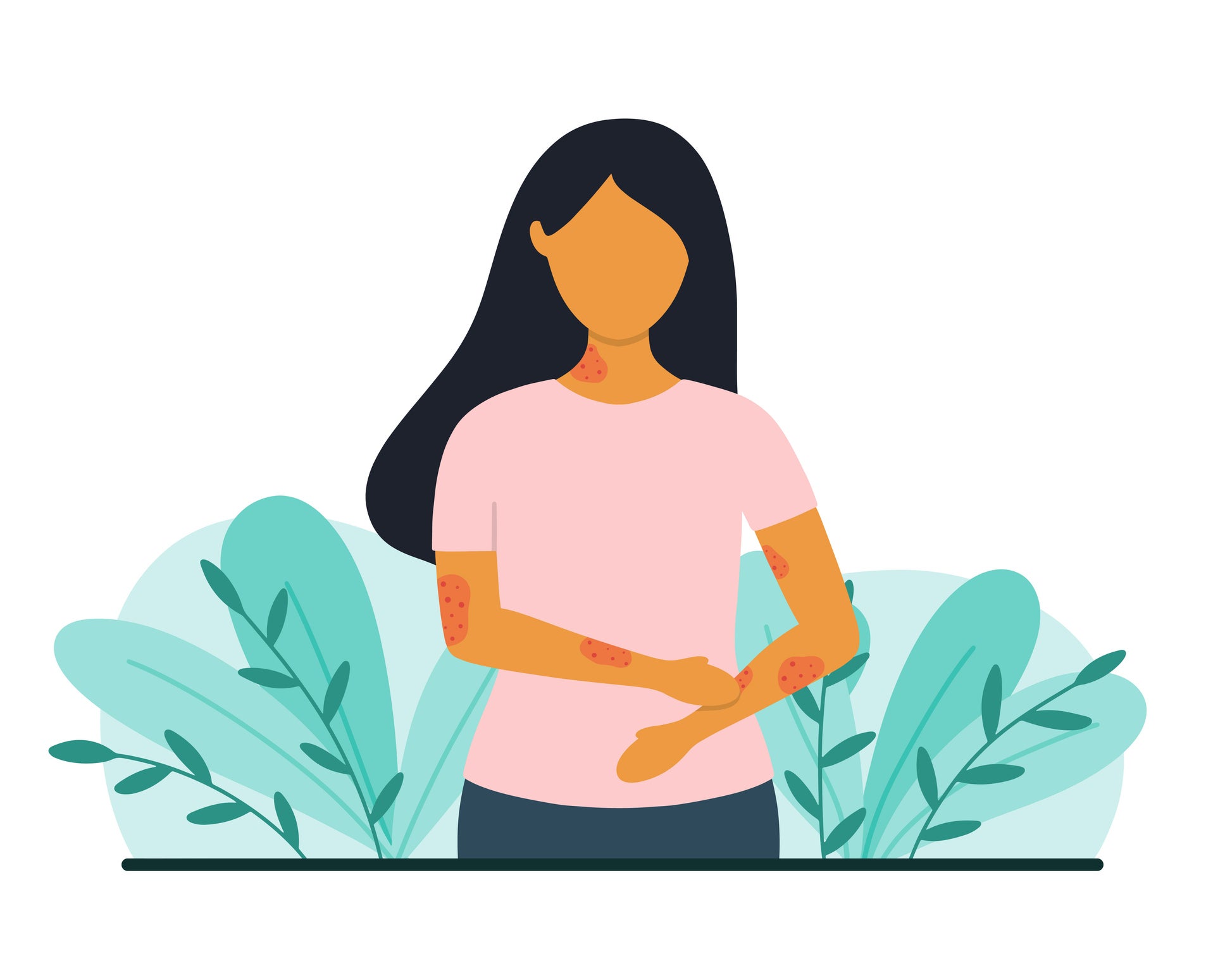Eczema isn’t funny – so I decided to put it in a comedy routine
These days, as with most things, I try and deflect the feelings of shame through humour


Your support helps us to tell the story
From reproductive rights to climate change to Big Tech, The Independent is on the ground when the story is developing. Whether it's investigating the financials of Elon Musk's pro-Trump PAC or producing our latest documentary, 'The A Word', which shines a light on the American women fighting for reproductive rights, we know how important it is to parse out the facts from the messaging.
At such a critical moment in US history, we need reporters on the ground. Your donation allows us to keep sending journalists to speak to both sides of the story.
The Independent is trusted by Americans across the entire political spectrum. And unlike many other quality news outlets, we choose not to lock Americans out of our reporting and analysis with paywalls. We believe quality journalism should be available to everyone, paid for by those who can afford it.
Your support makes all the difference.I have had eczema my whole life. I was an itchy baby, an itchy child and despite my GPs telling me I’d grow out of it, I’m an itchy adult.
Childhood memories are sprinkled with trips to the GPs, being slathered in moisturiser after moisturiser, waking up with weepy skin stuck to bloodied bedsheets. I remember trying different things to try and alleviate the symptoms. Baths laced with Oilatum – an oily, filmy liquid added to an evening bath – to soothe the skin. There was a time when we thought oranges might make it worse, so I stopped drinking orange juice and squash. I also tried wearing cotton gloves to sleep, so I couldn’t scratch.
To be entirely reductive, it’s a really annoying condition. It’s not bad enough to have truly dire consequences but it has a profound effect on my daily life.
These days, as with most things, I try and deflect the feelings of shame through humour. Last week I did a stand-up gig entirely around eczema, featuring a glorious powerpoint presentation listing its pros and cons (the pros list was unsurprisingly short, the cons list surprisingly earnest). I included pictures of my wounds and stories of a misjudged bleach bath that earned me more sounds of pity than guffaws.
After the set, a woman came up to me and said she’d never heard someone else talk about having the type of eczema that I, and she, had. It was a really nice moment and highlighted why I wanted to do the routine. It can be quite a lonely thing, it’s painful. But like with a lot of things, talking about it and making it seem as normal and common as it is, helps.
Before the pandemic, I was referred to a dermatologist, who in about the first five minutes of our appointment, told me I had pompholyx eczema (or dyshidrotic eczema). It’s an extremely itchy form of eczema that presents itself as tiny blisters on the hands and feet, which eventually burst and cause the skin to peel and split and is generally unpleasant. He prescribed me an immunosuppressant cream for the blisters, as well as a backup steroid cream for any intense flare-ups.
I can kind of pin down that it gets worse when I’m stressed, anxious, have been doing cleaning or it’s particularly warm outside. A few months ago, I moved house which made me stressed, anxious, involved a lot of cleaning, and was just as we were moving into spring. Sure enough, the blisters formed and soon because of all the open wounds I ended up getting an infection. The entirety of the skin on my left hand was raw and open, oozing. I couldn’t bend the fingers because of the severity of the wounds and I had to constantly hold tissues to mop up whatever was leaking from them. Within weeks I was back at home because I couldn’t do anything for myself. Swabs were taken, I was given antibiotics, and after a trip to A&E I was finally physically on the mend but my self esteem was shattered.
I think there’s a perception of eczema and other skin conditions that they’re just an annoyance, just a bit of dry skin and if you just use the right moisturiser you’ll be fine. But for anyone living with a chronic skin condition, the symptoms run deeper than just the outward physical.
I have a very vivid memory from primary school. I must have been going through a flare up on my hands and remember one of the other kids saying “Mollie, you have dinosaur hands”. It sounds silly and trivial, but I remember feeling embarrassed. I’ve always wanted really nice hands. Dainty with long, slender fingers and soft skin. The kind that suit wearing rings and are nice to gesticulate with. The kind of hands you want to hold hands with. Unfortunately mine are mostly not that. They are often scabby, currently there are cracks in the knuckles where the skin has broken. When I’ve been with someone I want to hold hands with, I can’t hold them for long because the clamminess really stings.
A good percentage of the eczema experience is related to its mental health effects. It makes you feel disgusting and unsanitary. You’re constantly checking yourself for dry skin flakes, or bleeding. Summers are spent finding the right clothes so you don’t boil to death but are covering red, rashy backs of knees. When it’s brought up in conversation you’re faced with pitying looks and never-ending recommendations for creams they tried once and it helped them so it will certainly help you, even though you’ve had a lifetime of buying and trying the new miracle products. It’s painful and it’s depressing.
To keep up to speed with all the latest opinions and comment, sign up to our free weekly Voices Dispatches newsletter by clicking here
It’s hard to feel like a young, sexy thing when the day before you were blotting bleeding sores with tissue.
When I went through my recent infected flare-up last month, I had some really cathartic conversations with other friends with eczema. We ignored the straight forward chat about steroid creams and pain and went straight into how it affects your mind and how much your self esteem suffers.
There’s a lot of anxiety related to it too. When you’re in a period of remission you’re constantly looking for warning signs of the next flare-up. Is that just a bit of dry skin or is it threatening something more? While I can only speak for eczema, I think it’s safe to say that chronic skin conditions are never just a physical condition.
While they’re an obvious pain on the surface, they’re a less obvious pain on the inside too.
Join our commenting forum
Join thought-provoking conversations, follow other Independent readers and see their replies
0Comments